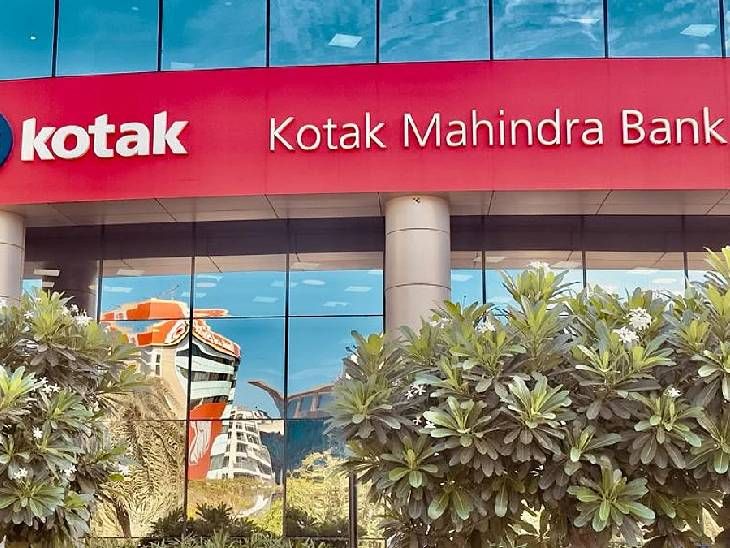New Delhi2 minutes ago
- Copy link
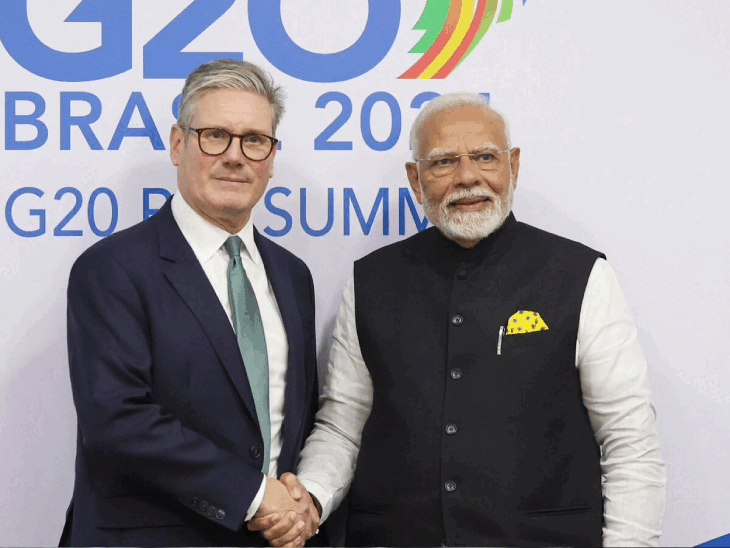
UK cars, clothes and footwear will be cheap in India. Today, on July 24, India and the UK signed the free trade agreement. Negotiations were going on since 2022.
Now 99% of India’s goods will be exported on zero tariffs in UK. At the same time, 90% of the UK goods will be imported on less tariffs. This is expected to double bilateral trade by 2030 to reach $ 120 billion.
Commerce Minister Piyush Goyal and British Business Minister Jonathan Reynolds signed the agreement in the presence of PM Narendra Modi and his UK counterpart Keer Stmper.
This will also benefit the UK. India’s tariff on imported whiskey will be reduced from 150% to 75%. Later it will be reduced to 40% by tenth year of the agreement.
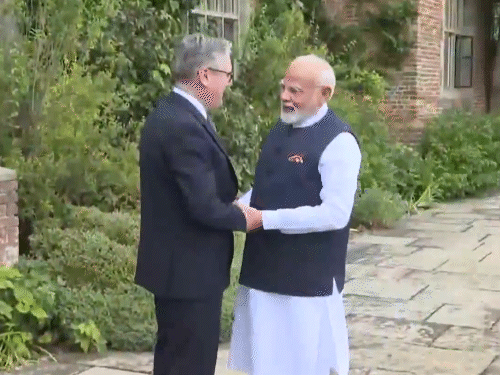
There was a free trade agreement between India and Britain on Thursday, July 24. Earlier, PM Modi and British PM stormer met.
One by one, let’s see what areas will benefit:
Question 1: What things will be cheaper in India?
answer: The average tariff on 99% of goods imported from UK will be reduced from 15% to 3%. 85% of the goods will be completely tariff-free in 10 years. This will make many things cheaper:
Whiskey and Gin: Scotch whiskey imported from UK and India’s tariff will decrease from 150% to 75%. Later it will be reduced to 40% by tenth year of the agreement.
For example, a scotch bottle of Rs 5000 can be found for Rs 3500 or less.
Luxury cars: Tariffs on UK cars (eg Jaguar Land Rover, Rolls-Royce, Eston Martin) will come up to 10% under quota system. This can make these cars 20-30% cheaper.
Food and beverages: The tariffs on salmon, lamb, chocolate, biscuits and soft drinks imported from UK will be reduced. This will make these products cheap.
Cosmetics and Medical devices: These goods will be cheaper with less tariffs on UK cosmetics, medical equipment and aerospace parts. The tariff will come down from 15% to 3%.
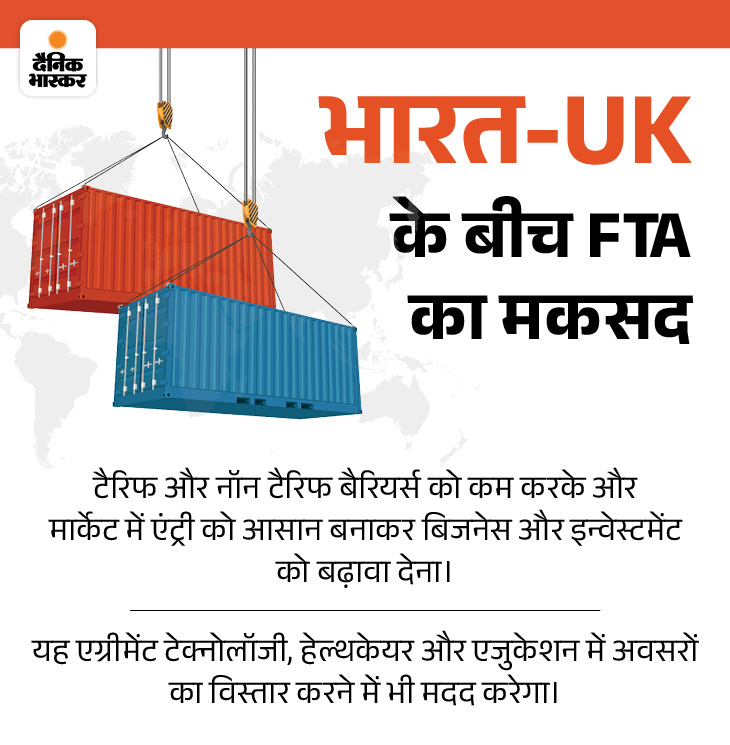
Question 2: Which sectors of India will benefit?
answer: From textile to engineering, medical and chemical sectors will benefit.
1. Textile Sector
In the UK, 8-12% tax was levied on Indian clothing and home textiles like home textile, screen, it will now be completely over. This will make our clothes cheaper and more competition than countries like Bangladesh and Vietnam. Export hubs like Tiruppur, Surat and Ludhiana may grow up to 40% in the next three years.
2. Jewelry and leather goods
There will no longer be any tax on jewelery and leather items such as bags, shoes from India to UK. This will greatly benefit small business (MSME) and luxury brands. At the same time, India’s dominance in Europe will increase further through the UK.
3. Engineering goods and auto parts
The UK has abolished the import tax on car parts such as Indian machinery, engineering tools and auto parts. This will further strengthen the industrial supply chain of India, UK and Europe. Manufacturing hubs like Pune, Chennai and Gurgaon will benefit.
4. Medicines and medical devices
Indian pharma companies will get easy registration process for generic medicines in UK. With this, India’s medicines will reach the UK’s Health Service (NHS) easily and the approval of medicines will also be available quickly.
6. Food and drink items, tea, spices and marine products
UK import tax on basmati rice, shrimp like marine products, premium tea and spices will end. This will give a big boost to the export industry of areas like Assam, Gujarat, Kerala, and West Bengal.
7. Chemicals and Specialty Materials
Reduced tax on agrochemicals, plastic and special chemicals will promote exports from major hubs like Gujarat and Maharashtra. Under this deal, India aims to double its chemical exports in the UK by 2030.
8. Green Energy and Cleintech
The agreement will open the way for joint ventures in renewable energy, including solar, green hydrogen, and electric vehicle (EV) infrastructure. The UK will further invest in India’s clean energy sector, which will co-develop new technologies.

Question 3: What will be the benefit of India’s economy from this deal?
answer: FTA is beneficial for India’s economy in many ways:
Exports increase: 99% of Indian goods will be exported at zero tariffs in UK. This will benefit areas such as textile, leather, gem-jewelery, marine products, and engineering goods. India’s export to UK can reach $ 29 billion by 2030.
Employment will increase: Labor based sectors such as textile and leather will create new jobs. Employment in the textile sector may double.
MSME promoted: India’s 60 million MSME will benefit. These contribute to 40% of India’s exports. This agreement will give them new markets and better margins.
Increase in investment: UK companies will increase investment in IT, financial services and green technology in India. This will strengthen India’s manufacturing and service sector.
Economic Development: This deal will increase India-UK trade by 15% annually by 2030. This will help India achieve a $ 100 billion trade target.
Question 4: When will this agreement be applicable?
answer: The agreement is signed on 24 July 2025, but it may take about a year to be implemented. This is because approval of India’s Union Cabinet and UK Parliament is necessary. They have been approved by the Union Cabinet of India.
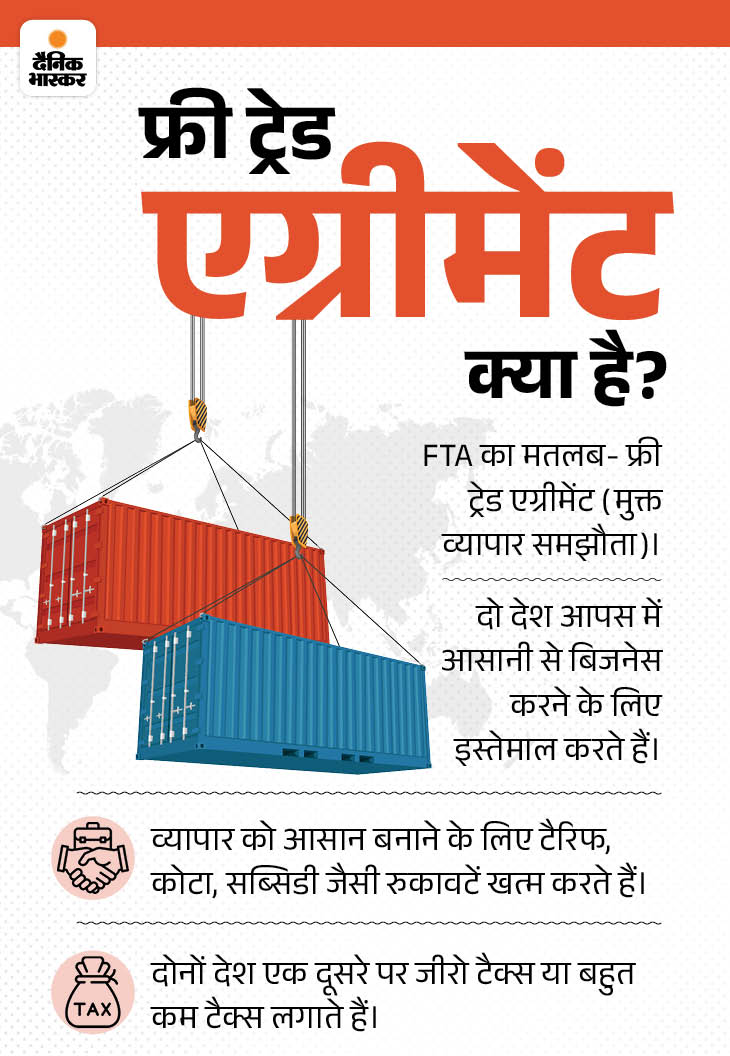
Question 5: When did the conversation start with the agreement between India-UK?
answer: The conversation between India and the UK started on 13 January 2022, which was completed after about 3.5 years. Since 2014, India has signed 3 such free trade agreement with Mauritius, UAE, Australia and EFTA (European Free Trade Association). India is actively negotiating on similar agreements with the European Union (EU).
-
Sensex fell 542 points to close at 82,184: The Nifty also dropped 158 points; IT, FMCG and Realty Shares the biggest decline
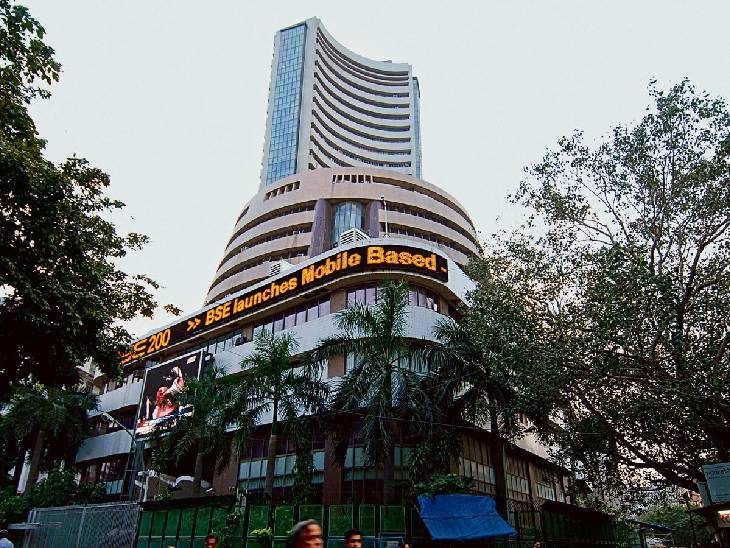
- Copy link
share
-
ED’s raid on Anil Ambani’s 50 companies: Loan fraud case of ₹ 3000 crore, accused of misuse of money from Yes Bank

- Copy link
share
-
Gold fell ₹ 1,426 to ₹ 99,107 per 10 grams: Silver ₹ 1,300 slipped to ₹ 1.14 lakh kg, see your city’s gold rate
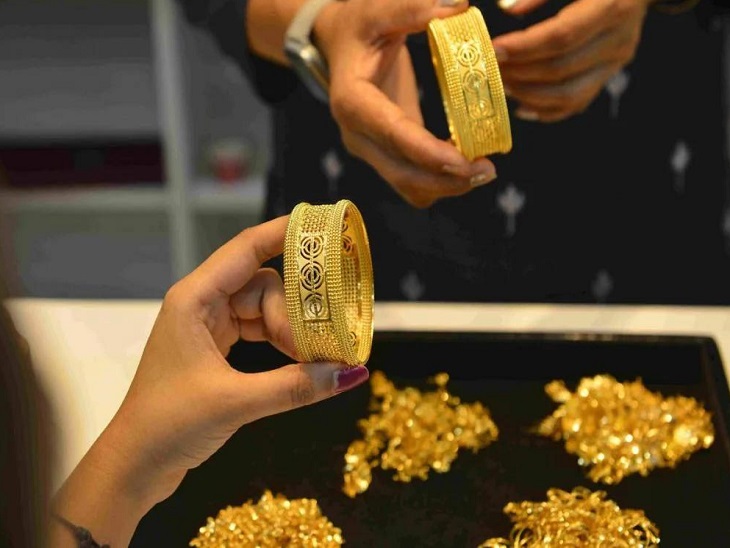
- Copy link
share
-
Gold ₹ 1,00,533 per 10 grams all-time high: Silver price beyond ₹ 1,15,850, emergency train-ticket will have to apply a day before

- Copy link
share


